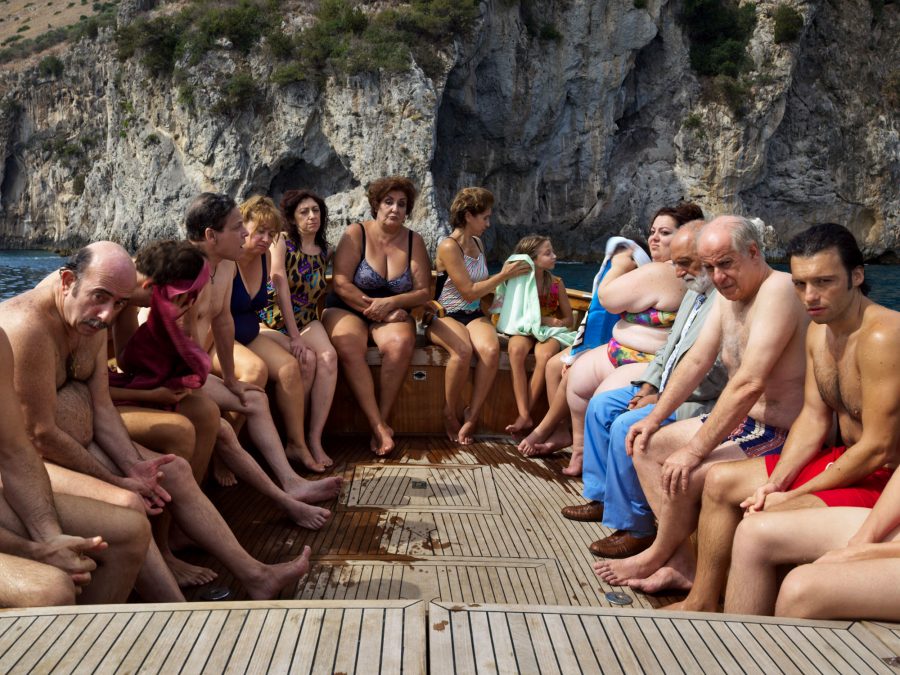The term “the hand of god” is synonymous with the moment in which proper naughty Argentinian footballing legend Diego Maradona cunningly nudged a goal in with his hand during the quarter finals of the 1986 World Cup against England – a moment read by many as karmic retribution for the Falklands War.
Italian filmmaker Paolo Sorrentino co-opts the term for this jolly cinematic bildungsroman based on his own upbringing in Napoli during the ’80s, where the hand of some divine force moves people like chess pieces around a giant board and fate deals its daily surprises. And wouldn’t that be a nice allegorical way to describe the work of a film director as well?
Even though this is recognisably a work by Sorrentino, with its crisply rendered visuals, swishing camera moves, ironic, fun-poking humour and episodic structure, he’s dispensed with the arch detachment of films like Il Divo and The Great Beauty and replaced it with a newfound earnestness that comes from his personal connection to the material. It’s a luxuriant and well-crafted film that brings a sense of spectacle to what is a story that’s interested in the highs and lows of low-slung domestic living, though every moment that works is usually trailed by one that doesn’t, making for frustratingly uneven viewing.

At the centre of the film is Filippo Scotti as Fabietto, a goofy teen with a Walkman strapped to his belt who is our entry point into a world of family squabbles and sporting obsession. Perhaps it’s out of modesty, or maybe a strict fidelity to the truth, but Sorrentino has chosen to write Filippo as a wholly uninteresting and unengaging screen proxy – an introspective wallflower who objectively observes the dramas of his life while seldom choosing to interact with them. This perpetual inexpressiveness just means that some of the big emotional beats don’t land as Sorrentino clearly intends them too.
The film tells of Fabietto’s fast-tracked road to maturity as the result of a family tragedy, and how his initial infatuation with football is eventually displaced by a desire to become a filmmaker. Sorrentino doesn’t foreshadow this change by hinting at Fabietto’s cinematic eye or a love of film (in fact, he can’t muster the energy to watch a single one), but more that he has gained knowledge and experience through his various encounters with in-laws, neighbours, petty criminals and the ageing older woman who lives downstairs and offers him one major life lesson entirely gratis.
The film is at its most interesting when Sorrentino demonstrates the nostalgic qualities of art, and how it can be used to recreate fragments of memory that might be completely subjective in their meaning, but the very fact that they have not faded through time boosts them with added profundity. In one sequence, when Fabietto is being given the aforementioned life lesson, there’s a very loud washing machine whirring in the background, which is a lovely example of how these crucial experiences lodge themselves in the brain replete with sights, sounds, smells, tastes and physical interactions.
Otherwise, the film shoots for the deliciously grotesque and bawdy cross-cut of Italian life as seen in Federico Fellini’s 1973 film Amacord, but lands closer to the extreme sentimentalism of Giuseppe Tornatore’s Cinema Paradiso. It ends up being a fairly clean combination of the two. It’s hard not to see the boldness of Sorrentino’s approach to biography, but too much of it flounders for a relevance beyond the director’s own flighty reminisces.
Little White Lies is committed to championing great movies and the talented people who make them. But to keep going, and growing, we need your support. Become a member today.
The post The Hand of God – first-look review appeared first on Little White Lies.
![Forest Essentials [CPV] WW](https://s3-us-west-2.amazonaws.com/pcw-uploads/logos/forest-essentials-promo-codes-coupons.png)
0 comments